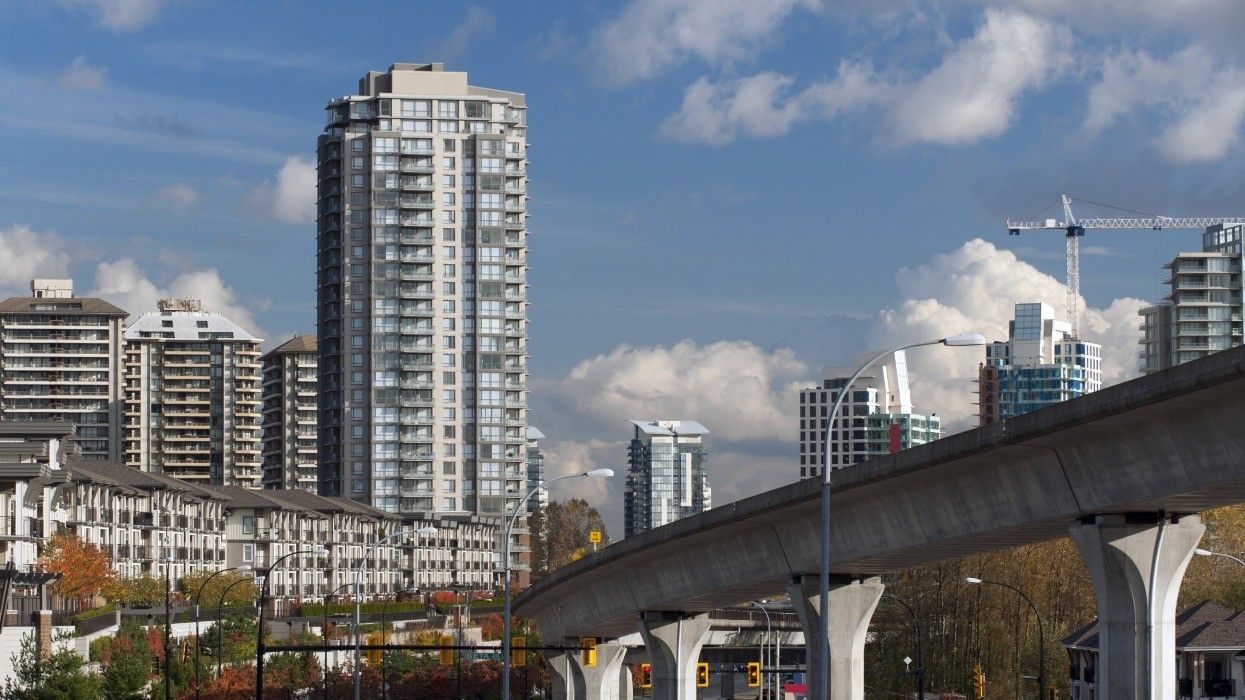Burnaby City Council is standing firm on its decision to withhold implementing legislative changes around transit-oriented development that were introduced by the Province late last year.
Last November, the Province introduced Bill 47, the Housing Statutes (Transit-Oriented Areas) Amendment Act, which set minimum heights and densities for housing developments based on proximity to transit hubs.
The Province identified an initial set of 52 transit hubs and designated them as TOAs on an interim basis, with local governments then expected to introduce their own bylaws implementing the new regulations, which also include removing minimum parking requirements, by June 30.
Despite the Province saying that land zoned for industrial or agricultural use would be the only exemptions, Burnaby decided to seek out an exemption in early-May for a site within the Brentwood Town Centre Station TOA, after a neighbourhood group called Save Brentwood Park voiced concerns.
Council showed empathy for those concerns, and while other municipalities have been opposed to Bill 47 because of the high-density development it could usher in, Burnaby's argument was that it had already done more than enough when it comes to high-density transit-oriented development.
There is some truth to Burnaby's stance, as the city is home to more master-planned communities and ongoing high-rise projects than any other municipality in British Columbia, most of which are clustered around the Brentwood, Metrotown, and Lougheed neighbourhoods and their respective SkyTrain stations.
Despite this, the Province told STOREYS and then the City that they would not be considering the exemption.
By late-June, just ahead of the June 30 deadline, the requisite bylaw was up for a first, second, and third reading, but Council instead opted to table the bylaw for a minimum of 90 days, ignoring the deadline.
The 90 days have since passed and the bylaw was set to be considered by Council once more at last night's meeting.
Once again, however, Council passed a motion to table the bylaw, led by Councillor Sav Dhaliwal, but this time indefinitely until Council makes a request to bring it back for discussion, citing the fact that the winner of the October 19 general election has yet to be identified and the uncertainty around that.
"Things have become complicated, in my view," said Dhaliwal. "In the recent election, there has been open discussion by the various parties to see whether Bill 45 [sic], 46, 47 would even remain or be rescinded. This, directly, would affect that."
In fact, the possibility of rescinding the legislation has only been discussed by one party, the Conservatives. Over the past year, Conservative Leader John Rustad has repeatedly criticized the NDP-government led by David Eby for imposing a series of legislative changes upon local governments, saying he would repeal them all if he becomes the next Premier.
However, while Rustad has been vague about the details of his platform and did not release the costs of his platform until four days before Election Day, after advanced voting had already begun, one of the few things the Conservatives have been clear about in their platform is their intentions with Bill 47.
"People deserve to live in complete communities near transit, not just dormitories," said the Conservatives in their platform, under a section that stated "support" for transit-oriented communities. "Bill 47 (Transit Oriented Areas) will be amended to ensure each new transit-oriented community is providing space for grocery stores and small businesses within walking distance of home."
In other words, the Conservatives do not, it appears, plan on repealing Bill 47, and the standoff with the Province will continue until the election results are finalized and government is formed.
[Editor's Note: After the NDP formed government again, Council granted a first, second, and third reading to a TOA designation bylaw on December 2.]




















